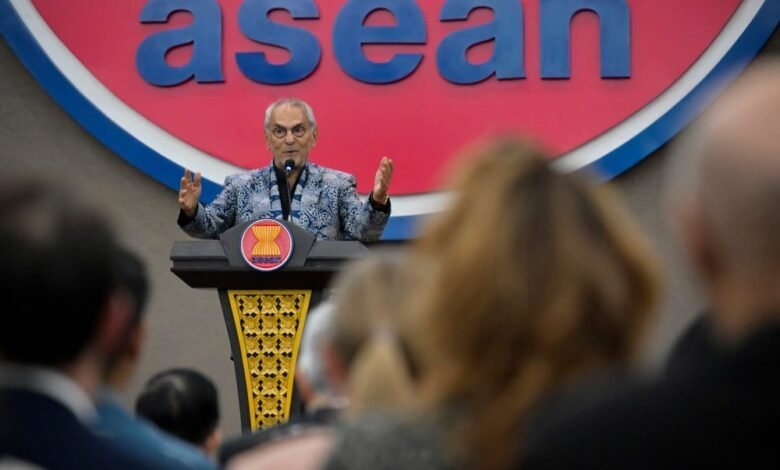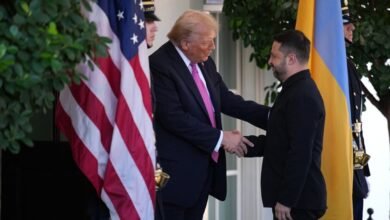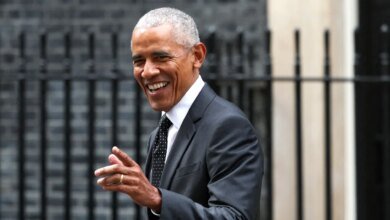How Timor-Leste Joining ASEAN Will Impact U.S.-China Competition

Barring a major surprise, East Timor will join the Association of Southeast Asian Nations (ASEAN) as the 11th member state at the bloc’s summit in Malaysia this month. Joining ASEAN would provide East Timor with significant diplomatic and economic benefits through better integration into the region. But it also means that the United States and China will pay more attention to the country and how that can be factored into their strategies to confront each other in Southeast Asia.
Although there is no membership vote within ASEAN, decisions are made by consensus. Thus, the inclusion of East Timor – the region’s only fully democratic state and a staunch supporter of international law – as a new member may shift the bloc’s orientation marginally away from an authoritarian China that seeks to revise the regional order. It could also give Washington some new strategic advantages. For one thing, Dili is well aligned with other countries seeking to keep the Indo-Pacific region “free and open” amid Beijing’s increasing coercive tactics, especially in the South China Sea. For example, Timorese President and Nobel Peace Prize laureate José Ramos-Horta spoke at a conference on international law and maritime security in May, saying that “for his country, international law is not just an abstract concept. International law is the foundation on which we have built our independence.” Indeed, it was the UN-led operation that finally liberated East Timor – the eastern half of the island of Timor, with a population today of 1.4 million – from Indonesian occupation, more than two decades after it declared its independence in 1975.
Barring a major surprise, East Timor will join the Association of Southeast Asian Nations (ASEAN) as the 11th member state at the bloc’s summit in Malaysia this month. Joining ASEAN would provide East Timor with significant diplomatic and economic benefits through better integration into the region. But it also means that the United States and China will pay more attention to the country and how that can be factored into their strategies to confront each other in Southeast Asia.
Although there is no membership vote within ASEAN, decisions are made by consensus. Thus, the inclusion of East Timor – the region’s only fully democratic state and a staunch supporter of international law – as a new member may shift the bloc’s orientation marginally away from an authoritarian China that seeks to revise the regional order. It could also give Washington some new strategic advantages. For one thing, Dili is well aligned with other countries seeking to keep the Indo-Pacific region “free and open” amid Beijing’s increasing coercive tactics, especially in the South China Sea. For example, Timorese President and Nobel Peace Prize laureate José Ramos-Horta spoke at a conference on international law and maritime security in May, saying that “for his country, international law is not just an abstract concept. International law is the foundation on which we have built our independence.” Indeed, it was the UN-led operation that finally liberated East Timor – the eastern half of the island of Timor, with a population today of 1.4 million – from Indonesian occupation, more than two decades after it declared its independence in 1975.
Aside from the South China Sea issue, East Timor also has strong relations with the United States and its allies and partners in the region. In July, for example, Ramos-Horta praised Daily’s relations with Washington. Moreover, many of the United States’ close friends in ASEAN—Indonesia, the Philippines, Singapore, and Vietnam—will view East Timor’s presence in the bloc favorably because it reinforces their long-standing positions on the need to maintain a rules-based order.
The authoritarian members of the Association of Southeast Asian Nations (ASEAN) tend to be more ideologically aligned with China; This category includes Cambodia, Laos, Myanmar and to a large extent Vietnam. The addition of East Timor could strengthen the influence of the democratic bloc within ASEAN, which includes Indonesia, Malaysia, and the Philippines, as well as the hybrid regimes in Singapore and Thailand. This is not a trivial issue, considering that five out of ten current members of the Association of Southeast Asian Nations (ASEAN) are, in my estimation, authoritarians. The ASEAN Charter clearly states that achieving and maintaining democratic governance across the region is a top priority: Article 1 commits the bloc to upholding and protecting “human rights and fundamental freedoms” and “promoting democracy,” while Article 2 seeks to promote “commitment to the rule of law, good governance, and the principles of democracy and constitutional government.”
As the only country in Southeast Asia classified by Freedom House as completely free, Timor-Leste is likely to side with the United States and other democracies seeking to confront the spread of authoritarianism and illiberal rule throughout Southeast Asia. When Myanmar’s junta expelled East Timor’s ambassador in 2023, for example, Dili reiterated the need to restore democracy in the country.
However, the strategic advantages enjoyed by Washington in East Timor’s accession to the Association of Southeast Asian Nations (ASEAN) collide with many potential challenges. The first is that China remains the country’s dominant economic partner, especially through the Belt and Road Initiative, which provides much-needed investment and infrastructure projects for small, poor countries like Timor-Leste. In 2018, for example, Chinese companies completed construction of the first phase of East Timor’s first-ever highway, known as the Suai Highway. China is also building the Wattua/Modubuti Irrigation Project, a major agricultural infrastructure project that is expected to double farmers’ incomes once completed in 2028. Timor-Leste’s prospective entry into the Association of Southeast Asian Nations (ASEAN) free trade zone is unlikely to have any impact on China’s growing economic influence on the island.
Moreover, Dili’s inclusion in ASEAN could complicate any attempt by the United States and its partners to leverage East Timor’s favorable geographic location — located between Indonesia and Australia — to achieve any significant strategic impact. Before becoming a member of the Association of Southeast Asian Nations (ASEAN), Australia in particular sought to do this through the “Pacific Escalation” program, as it viewed East Timor as giving Australia more strategic depth against China by creating an obstacle for Chinese military forces on their way to Darwin. In 2022, Australian Prime Minister Anthony Albanese said that the new defense agreement between the two countries will be the basis for increased defense and security cooperation, especially in the maritime field. But although ASEAN is not a security alliance, membership may make East Timor more cautious about security partnerships outside the bloc — including with Australia and the United States — given the group’s non-alignment and concerns about individual countries undermining peace and stability.
The other complication obviously comes from the United States itself. Under a second Trump administration, many, if not most, of the traditional components of US foreign policy — such as upholding democratic values or actively seeking to deter China — may be watered down or abandoned, including in comparison to President Donald Trump’s first term. Early reports suggest that the next US National Defense Strategy will prioritize hemispheric defense as part of the broader defense of the American homeland, and that great power competition against China, while still a priority, may no longer be the driver of US foreign policy under Trump. Despite the latest round of trade war between the US and China, Trump appears more interested in achieving some sort of reset in relations with Beijing. He will have the opportunity to do so in late October on the sidelines of the Asia-Pacific Economic Cooperation summit in South Korea, where he is expected to meet Chinese President Xi Jinping. An agreement between Trump and Xi could accelerate the arrival of a new world order based on spheres of influence led by great powers. If this is true, this would imply that Southeast Asia would not constitute a high priority for Washington, which may no longer care which side East Timor is on. In fact, since the Trump administration took office, there has been no mention of Dili joining ASEAN by any high-ranking official, suggesting that it is simply not on the radar. Washington could thus give Beijing the strategic opportunity to make additional unchecked incursions into the region. For its part, China last year expressed its support for Timor-Leste’s imminent membership in the Association of Southeast Asian Nations (ASEAN), and in 2023 it elevated bilateral relations to the status of a “comprehensive strategic partnership.”
Overall, East Timor’s accession to the Association of Southeast Asian Nations (ASEAN) represents a positive development for the United States and less so for China. East Timor is the country America stands to lose in the great power competition, and given current trends in Washington, that outcome is possible.
Don’t miss more hot News like this! Click here to discover the latest in Politics news!
2025-10-16 21:29:00




